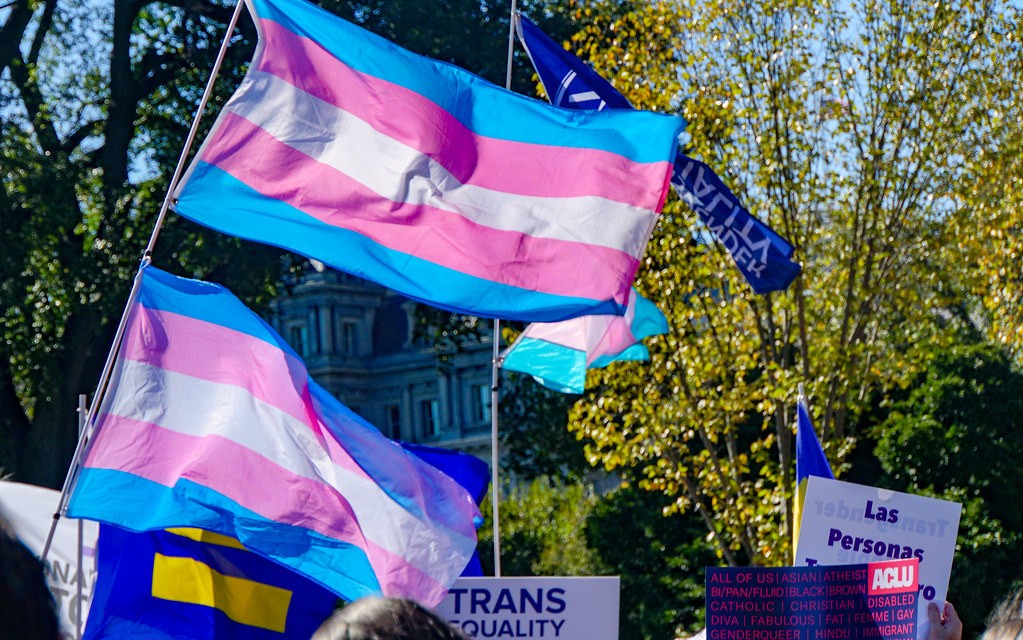When I have written for The Social Review in the past I’ve been trying to find the way to sing from my heart the desire to see a just and righteous world created, like the biblical prophets of old. To create such a world is the reason in politics at all. I want to state, simply and plainly, without any bullshit: here we are. We will not apologise. This is what is. This is what justice demands. I trip over myself, though, I do not think I have always found that voice. I am a timid writer. I shouldn’t be. Nevertheless, I carry on trying.
Shon Faye’s new book, The Transgender Issue, manages to do what I feel I have always failed to do. This is not a long book – a few hundred pages – and indeed it feels shorter than it is because Shon does not really waste a word. I was constantly marvelling throughout on how each phrase was carefully chosen; the book eschews sweeping statements and nice pleasantries in favour of a palpable awareness of the limits of its author. A white, middle-class trans woman who has had a relatively smooth transition, not entirely unlike myself, while being no less committed to demanding justice for all throughout.
It is this focus on universal justice that makes this a particularly sublime work. At times I think some trans people – by no means all, by no means most, but perhaps the ones who are heard the most – focus on trans struggles without seeing the fundamentally interlinked nature of trans liberation with the liberation of all the dispossessed and marginalised. A lesser book would not have included the fairly substantial chapter on the rights of sex workers; it would not have constantly acknowledged that being a trans person of colour or a disabled trans person makes all of this so much harder.
In what is sadly a timely section, Shon correctly links the right to abortion stemming from bodily autonomy to the same natural rights that trans people possess. I would have liked to hear more on this. I think, for instance, that there is much to be written on the ways in which the liberation of disabled people and trans people are intertwined! Word counts are merciless, however: I don’t begrudge it.
I am sure that some people will dislike the book for its polemic style, for the way it unrelentingly doesn’t apologise for trans people, for who we are, for the necessary components of our liberation. They’ll say things like “oh, well this gives one side, and Helen Joyce’s book gives another side, and the truth must be somewhere in the middle”. Fuck that! Fuck incrementalism! Fuck careful, tiny victories that are destroyed as easily as a castle made of sand! Demand the world!
I am – as a leftie white middle-class transfem who believes in trans liberation not trans rights and building bridges, intersectionality and the struggle for justice and righteousness – almost supernaturally primed to love this book, and I did! Ultimately I enjoyed this book because it aligned and confirmed my existing beliefs and prejudices, but also weird bugbears I have. I have never seen the Yogyakarta Principles mentioned in UK trans activism but they did here! I would recommend it to nearly anyone. I think this book is sublime, and I don’t just mean that in a generic adjectival sense: it transcends the discourse, raises it to a higher state, elevates it and exalts it.
As I write this, it is nearing the end of the month of Elul, the last month of the Jewish calendar before the High Holy Days. It is a time of penitence and spiritual and practical reflection, where we reflect on what we – collectively – have done wrong in the last year, and what we could do differently. At the end of the High Holy Days, on Yom Kippur, the Day of Atonement, we pray for much of the day, and as part of that prayer we read from the book of Isaiah, and in particular we read this text:
This is the fast I desire:
To unlock fetters of wickedness,
And untie the cords of the yoke
To let the oppressed go free;
To break off every yoke.
In Progressive Judaism, there is a notion of the prophetic voice that calls out through the generation and leads us if we can but listen to righteousness and the pursuit of a just world. I want you to understand this when I say that I found this book to speak with a prophetic voice – not in the sense of predicting the future, but for being a conduit for a righteous and powerful force for justice in the world. It comes through many people at different times, in different places – that force within us all that cries for justice speaks here through Shon. Give this book your time.


